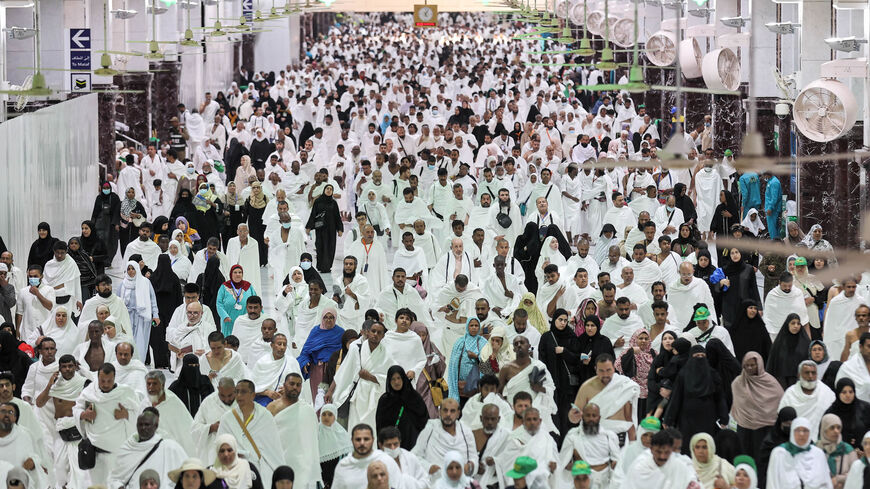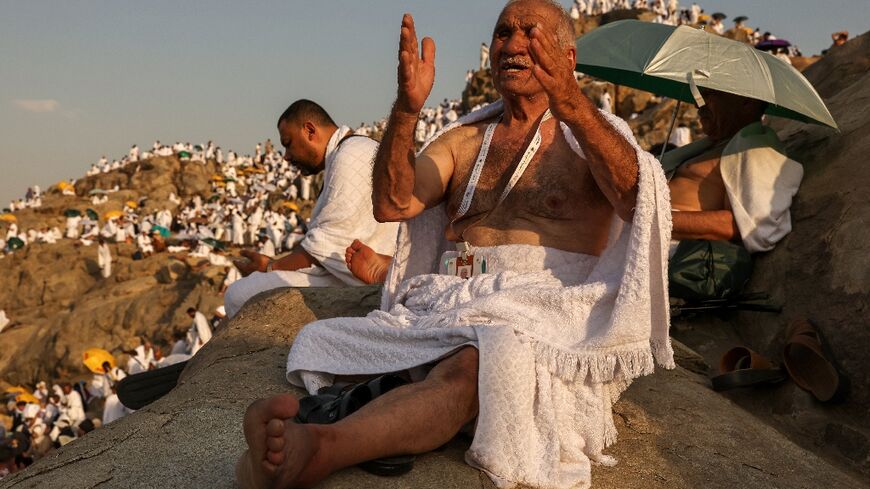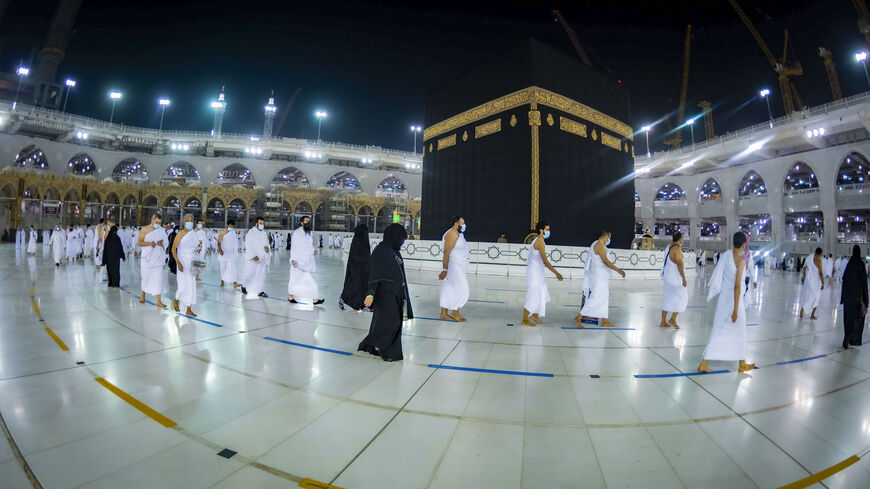Iran claims Saudi Arabia won't let Iranian pilgrims vote
Iranian worshippers resumed Umrah pilgrimages to holy sites in Saudi Arabia in April after the two countries resumed relations last year.

Iran claimed on Wednesday that Saudi Arabia is not allowing Iranian pilgrims in the country to vote in the upcoming presidential election.
The official Islamic Republic News Agency reported that Saudi authorities rejected Iran's request to allow 47,000 Iranian Hajj pilgrims in the kingdom to vote in Friday’s presidential election. Mohsen Eslami, spokesperson for Iran’s election authorities, said that the Iranian government has provided the necessary arrangements for the pilgrims to vote and that Iranian pilgrims have requested ballots, according to the agency.
The Saudi government did not immediately comment.
The Hajj is an annual pilgrimage made by Muslims to Mecca and other holy sites in Saudi Arabia. This year's season concluded on June 19. Iranian authorities did not say why the pilgrims are still in Saudi Arabia.
What it means: Iran will hold presidential elections on Friday. The snap election was called following the death of President Ebrahim Raisi in a helicopter crash last month.
The Guardian Council, which is controlled by the Supreme Leader Ayatollah Ali Khamenei and approves presidential candidates, approved five hard-liner and one Reformist candidates this year. The Iranian president runs the country from day to day, but Khamenei holds ultimate authority in the Islamic Republic’s system.
Iranian citizens living abroad are allowed to vote in the election. Eslami told local news outlets on Tuesday that there are 250 polling stations around the world for Iranians to use. He did not specify in which countries the polling stations are located.
The Biden administration will allow Iranians in the United States to vote in the election, Voice of America reported on Saturday. Iranians were able to vote in the 2017 and 2021 elections from the United States as well, a State Department official told the outlet.
The turnout in the March parliamentary elections in Iran was around 41%, the lowest since the 1979 revolution.
Why it matters: Saudi authorities said 1.8 million Muslims participated in the Hajj pilgrimage earlier this month.
Iranian pilgrims returned to Saudi Arabia in April for the Umrah, a pilgrimage to Mecca outside the official Hajj season, after a nine-year absence. Iranian authorities suspended Umrah flights in 2015 after reports emerged that Iranian youths were sexually assaulted at the Jeddah airport by Saudi security officers. The Hajj was excluded from the ban.
The return of Iranian pilgrims to Umrah followed Saudi Arabia and Iran resuming diplomatic ties last year. The two rivals subsequently reopened their respective embassies and ties have warmed somewhat, though tensions remain. Al-Monitor’s correspondent in Tehran wrote in May that Iran is particularly concerned about possible normalization between Saudi Arabia and Israel. Iranian support for Yemen's Houthi rebels, who have been carrying out attacks in the Red Sea, is another issue between the two countries.
Videos on social media showed Iranian pilgrims shouting “death to America” and “death to Israel” during the Hajj.
Iranian pilgrims chanting Death to Israel in slogan in Mecca, Saudi Arabia
— IRNA News Agency (@IrnaEnglish) June 15, 2024
Iranian pilgrims of Hajj held the ceremony of disavowal of polytheists, which is an important part of Hajj rituals, expressing their disgust for the crimes of Israel and the US. pic.twitter.com/202ns5leoZ
Know more: More than 1,000 people died at the Hajj this year, in large part due to high temperatures in the area.








